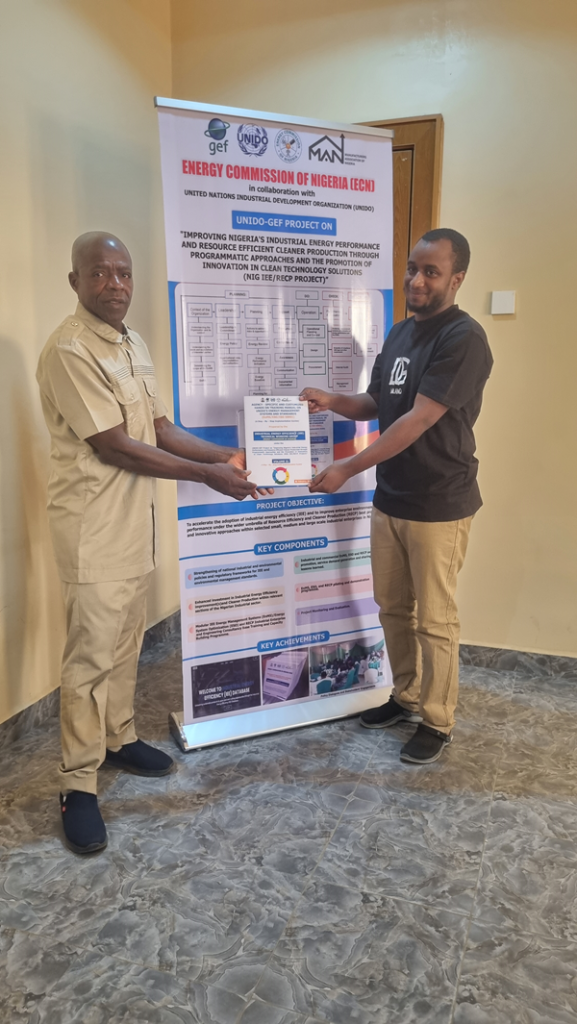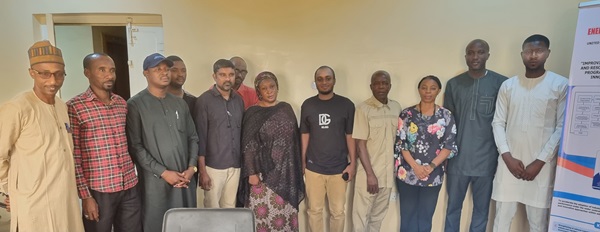
The Energy Commission of Nigeria (ECN), in partnership with the United Nations Industrial Development Organisation (UNIDO), has launched a major drive to transform Nigeria’s industrial sector, convening a kick-off review meeting with key stakeholders in Kaduna.
The gathering marked the formal start of the Global Environment Facility (GEF) project titled “Improving Nigeria’s Industrial Energy Performance and Resource Efficient Cleaner Production through Programme Approaches and the Promotion of Innovation in Clean Technology Solutions.”
The multi-million-dollar initiative aims to embed Resource Efficiency and Cleaner Production (RECP) best practices across selected small, medium and large-scale enterprises nationwide. Through the project, participating industries will adopt Industrial Energy Efficiency (IEE) measures and implement Energy Management Systems (EnMS) designed to optimise operations, minimise waste and reduce greenhouse gas emissions.
Central to the meeting were addresses from experts committed to driving this transformation. Leading the discussion, Engr. Okon Ekpenyong, industrial energy efficiency consultant to the ECN, emphasised the core principle behind energy efficiency: delivering essential services while using less power.
“The whole message here is how to use our energy more efficiently,” Ekpenyong said, illustrating the point with examples from everyday life. He traced the evolution from 60-watt incandescent bulbs to compact fluorescent lamps, and now to advanced LED alternatives that consume as little as five watts while providing brighter illumination. This shift, he noted, exemplifies how efficiency enhances both performance and cost savings.
Expanding on industrial applications, Ekpenyong stressed that the same principle applies to machinery and production lines. “When we talk about energy efficiency in industries, it’s about getting your production going at full capacity but with significantly lower energy consumption,” he explained. He urged industries to meticulously monitor their energy usage to accurately determine true production costs and identify areas for potential savings.
Responding to Ekpenyong’s presentation, accountant at Hulhulde Rice Mill Limited, Kaduna State, Nuradeen Saminu gave a candid appraisal of the challenges his company faces. He commended the ECN–UNIDO initiative, emphasising that the programme’s benefits extend beyond corporate profits to broader national economic health.

“We appreciate this gesture,” Saminu said. Drawing on personal experience managing prepaid meters at home, he noted how high energy costs have burdened their operations. “Energy has been consuming our income at this company, so we are going to work with you as a team to reduce our energy consumption.”
Saminu revealed that Hulhulde Rice Mill’s minimum monthly energy costs range between ₦32 million and ₦40 million, figures that have risen even further following recent tariff reviews. He added that despite government reforms and evolving policies, the company’s production output has remained stagnant since January 2025, while energy expenditures have continued to escalate.
During the kick-off review, the ECN and UNIDO teams also visited several industries at their respective premises, including Chello Industries Limited, FaLGate Food Limited, Arewa Metal Container (ARMECO) Limited, Seven-Up Bottling Company and Kaduna Furniture and Carpets Company (KFCC) Limited.
Industry representatives present at the meeting expressed enthusiasm for the collaboration. Many pledged to adopt the recommended RECP frameworks and EnMS protocols, expressing confidence that better energy monitoring and management would enhance their competitiveness and sustainability. The project’s approach includes extensive training workshops, on-site energy audits and the establishment of energy performance indicators, with periodic reviews scheduled over the next two years.
As Nigeria works to meet its international commitments under the Paris Agreement and seeks to strengthen its industrial base, the ECN–UNIDO partnership via the GEF project offers a timely and strategic blueprint. By mainstreaming cleaner production practices and promoting innovation in clean technologies, the initiative aims not only to lower operational costs for industries but also to significantly reduce Nigeria’s carbon footprint.
Stakeholders have been encouraged to remain actively engaged as the programme unfolds, with a focus on ensuring that energy efficiency becomes a permanent feature of Nigeria’s industrial landscape. Observers suggest that the success of this project could serve as a powerful model for other African nations confronting similar challenges in industrial energy management.

